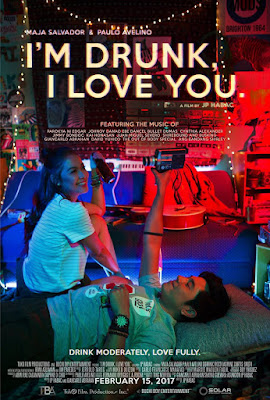DJANGO UNCHAINED (Quentin Tarantino, 2012)
DJANGO UNCHAINED has been a long time coming for Tarantino, because he's been planning to do a spaghetti western for ages. Lucky for us, it's already here. You might remember traces of the spaghetti western in KILL BILL (the scene at El Paso, the music by Chingon, and basically the whole Vol. 2) and for loyal followers of Tarantino, DJANGO UNCHAINED is a wet dream come true.
Familiar elements of the genre abound: guns, cowboy hats, horses, whips, standoffs, and yes, the pursuit of vengeance (or justice, whichever you might label it). DJANGO UNCHAINED first introduces us to a traveling bounty hunter named Dr. King Schultz (Christoph Waltz) who is on the prowl for the notorious Brittle brothers. He enlists the aid of a slave named Django (Jamie Foxx) and on begins a colorful journey of moneymaking and revenge seeking. As usual, Tarantino's lengthy dialogue and extended conversational skills are on full display here, which might make unrest for the unprepared viewer but one thing's for sure- Tarantino knows what he's talking about.
The latter part of this 165-minute running time film takes place in the presence of a vile but charismatic plantation owner Calvin J. Candie (Leonardo DiCaprio), who currently owns Django's wife, Broomhilda (Kerry Washington) as a slave. The year takes place two years before the civil war, and the backdrop for the movie is as racially charged as hell. Even filmmaker Spike Lee expressed disgust, saying Tarantino is obsessed with the N-word, and pretty sure there's loads of that in this film. But if the extensive use of the N-word isn't serving any purpose at all, then why did African Americans Jamie Foxx and Samuel L. Jackson agree to be in this film? The N-word usage I think was meant as a figure of speech, to further deconstruct the harshness of the times, when the whites felt that the blacks were beneath them, and usage of such word (which in modern day America can get you killed) was just a normalcy.
Quite lengthy but never boring, with Tarantino's satire coming in at handy, DJANGO UNCHAINED delivers further intrigue by the inclusion of Samuel L. Jackson's character Stephen, Candie's senior house slave, or the trusty butler if you will. Back talking, rude, and always suspicious, Stephen sparks onscreen curiosity because he is the character who ignites basically all the tension in the third act, which paves the way for a bloody shootout in the big house. Candie during a dinner conversation laments of the blacks, "why don't they just rise up and kill the whites?". Good point. Stephen is a black slave, but his allegiance is not to Django's plight, or taken in a larger context, the Negroes' plight. Like what Django tells Candie, "I'm curious as to what makes you so curious". Stephen's nosiness and curiosity ought to have earned Samuel L. Jackson a best supporting actor nod in the Academy.
Somewhat predictable in parts (I kind of know that _________ gets killed at some point), DJANGO UNCHAINED still manages to whip up some surprise, especially in the third act, where the level of craziness went from absurd to Monty Python proportions.
Nevertheless, if you're a fan of spaghetti western, of Tarantino's body of work, and seeing Samuel L. Jackson in a villainous role worthy of his brains getting blown to smithereens, then DJANGO UNCHAINED is that gem of a movie that awaits you.
RATING: 5/5


I would name your blog the dreamland! While Santa knocks Dog Products online, Pet Products wholesale, Luxury Dog Beds at our door just once per year, you blog is open the whole year – wow!
ReplyDelete